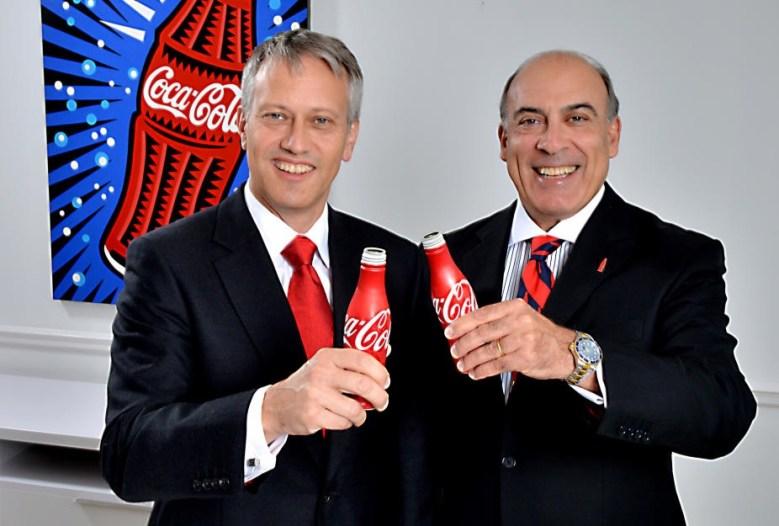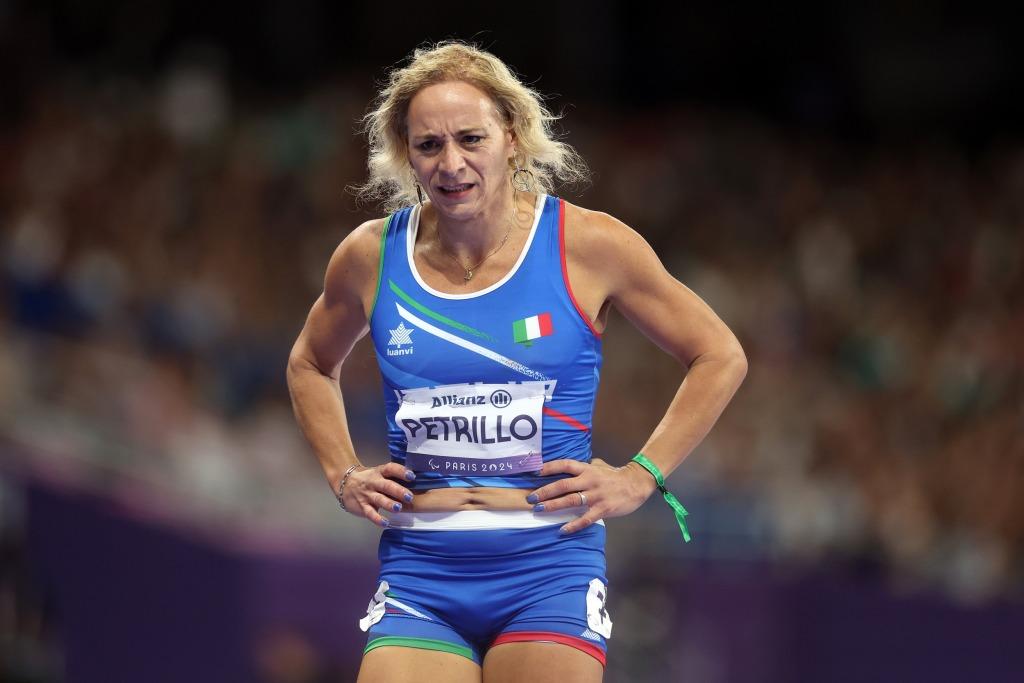m “Coca-Cola CEO Threatens to Pull Olympic Sponsorship Over Trans Athletes — Organizers Respond in Stunning Tweet”
LOS ANGELES — In a move that has sent shockwaves through the sports and corporate worlds, James Quincey, CEO of Coca-Cola and one of the largest sponsors of the Olympic Games, ignited a firestorm of debate after publicly expressing concern over the inclusion of transgender athletes Lia Thomas and Valentina Petrillo in women’s events at the upcoming Olympics. Quincey, long celebrated as an advocate for diversity and inclusion, surprised observers by issuing a stark warning on social media: “I will end my investment in the Olympics if they promote LGBT, and I need fairness in competitions.”
The statement immediately reverberated across the sports community, corporate boardrooms, and social media platforms, reigniting debates that have simmered for years regarding transgender participation in women’s sports. According to Quincey, the inclusion of Thomas and Petrillo—both biologically male athletes who transitioned after puberty—threatens the integrity of competition and undermines fairness in the women’s categories.
Quincey’s comments mark a dramatic shift for Coca-Cola, a brand that has historically positioned itself as a champion of inclusion and diversity, from sponsoring Pride events to supporting global equity initiatives. The CEO’s warning highlighted a tension inherent in corporate sponsorships of sporting events: the desire to promote inclusivity versus the imperative to uphold perceived fairness in competition.

Immediate Reaction from the Olympic Committee
The International Olympic Committee (IOC) responded swiftly. Within hours, the Olympic organizing committee issued a tweet that left the sports world reeling: “We will ban Lia Thomas and Valentina Petrillo. We will review if they are not suitable and will disqualify both if necessary.” The decisive stance marked one of the fastest reactions in recent Olympic history, signaling that the organization was prepared to act in a manner that could satisfy critics while igniting new controversy.
IOC officials emphasized that the decision would be guided by both fairness and regulatory standards, though the rapid announcement left many questioning whether due process had been fully observed. While some welcomed the move as a reinforcement of competitive integrity, others interpreted it as a capitulation to corporate pressure and public backlash.
The Broader Debate: Inclusion vs. Fairness
The Quincey–IOC controversy has underscored the broader cultural and ethical debate surrounding transgender participation in sports. Advocates for Thomas and Petrillo argue that transgender athletes are trailblazers, exemplifying courage and paving the way for greater inclusivity. Supporters note that eligibility rules exist to balance fairness with inclusion, including hormone treatments and transition-related regulations designed to mitigate biological advantages.
Critics, including Quincey and a vocal segment of sports analysts, contend that physical advantages gained prior to transitioning—such as bone density, muscle mass, and cardiovascular capacity—create an uneven playing field in elite women’s events. “Fairness in competition is non-negotiable,” one sports commentator wrote. “If a category is defined by sex, biology matters. It’s not about discrimination; it’s about integrity.”
Public opinion remains deeply polarized. Social media platforms, particularly X, have become battlegrounds for debate. Pro-inclusion voices argue that barring transgender athletes reinforces stigma and excludes individuals who identify and live as women. Meanwhile, critics highlight the principle of equal opportunity for cisgender female athletes and question whether sponsorship dollars are influencing decisions. Hashtags such as #FairPlayOlympics, #TransInclusion, and #CocaColaPressure have all trended in the last 24 hours, reflecting the intensity of the conversation.

Corporate and Sponsor Implications
Quincey’s comments have placed Coca-Cola in the eye of the storm. The company has invested millions in the Olympic movement and relies on association with the Games to reach global audiences. Analysts note that a withdrawal—or even a public threat of withdrawal—raises stakes for the IOC and other sponsors, potentially influencing eligibility rules and public messaging.
“Quincey’s statement is more than an opinion—it’s leverage,” said one corporate strategist. “When a major sponsor signals dissatisfaction, the IOC has to respond carefully. There’s reputational risk on all sides, and brands are watching closely.”
Coca-Cola has not formally threatened to divest, but Quincey’s public remarks have already intensified scrutiny from investors, advocacy groups, and global media outlets. The company faces the delicate task of balancing commitments to inclusion with the economic realities of sponsoring one of the world’s largest sporting events.
Athlete Perspectives
Athletes themselves have weighed in cautiously. Some cisgender competitors have expressed support for Quincey’s focus on fairness, emphasizing the importance of clear and consistent regulations. Others, particularly transgender athletes and allies, argue that threats to sponsorship and public condemnation reinforce the challenges faced by transgender competitors at all levels of sport.
Valentina Petrillo, Italy’s track champion, released a brief statement: “I have trained my entire life to compete. My right to compete in the category that aligns with who I am is protected by the rules. Attempts to politicize this are unfair and damaging to athletes like me.”
Meanwhile, Lia Thomas, the American swimmer whose participation sparked widespread debate, has remained largely silent, though supporters have highlighted her rigorous adherence to eligibility requirements set by USA Swimming and international sporting bodies.
Global Implications for the Olympics
The controversy has international ramifications. The Olympics have long been a stage for geopolitical tension and cultural debate, and the Thomas–Petrillo situation adds another layer to the complexity. Decisions made by the IOC will be closely watched by national Olympic committees, athletes, and global audiences. The ruling could influence future policy on transgender participation and eligibility rules, affecting the trajectory of competitive sports worldwide.
Experts note that this is not merely a question of identity; it is a test of governance, corporate influence, and public trust in sport. The IOC’s handling of the situation could redefine how major sporting events negotiate inclusivity while maintaining competitive integrity.

Looking Ahead
As the Olympics draw near, the debate over Lia Thomas and Valentina Petrillo’s participation shows no signs of abating. Quincey’s public statements have amplified the conversation, forcing the IOC to navigate the difficult terrain between inclusion, fairness, and sponsorship influence. Athletes, sponsors, and fans alike are watching closely to see whether the Olympic Games will prioritize competitive integrity or progressive inclusivity in the face of controversy.
For James Quincey, the comments signal a rare moment of intervention by a corporate leader in the governance of global sport. For the IOC, the challenge lies in balancing ethical, regulatory, and financial pressures. And for athletes like Thomas and Petrillo, the stakes are deeply personal—their right to compete and be recognized in their categories hangs in the balance.
The situation is emblematic of a broader cultural conversation: the intersection of gender, fairness, and corporate influence in sports. With global attention focused on the Olympics, the decisions made in the coming weeks could have lasting implications for how transgender athletes are accommodated in elite competition, how sponsors influence sporting policy, and how audiences reconcile ideals of fairness with inclusion.
For now, one thing is clear: the controversy surrounding Lia Thomas and Valentina Petrillo has transformed what should have been routine Olympic eligibility decisions into a global flashpoint, and Coca-Cola’s CEO has ensured that the debate over fairness, inclusion, and corporate influence will dominate headlines leading into the Games.


